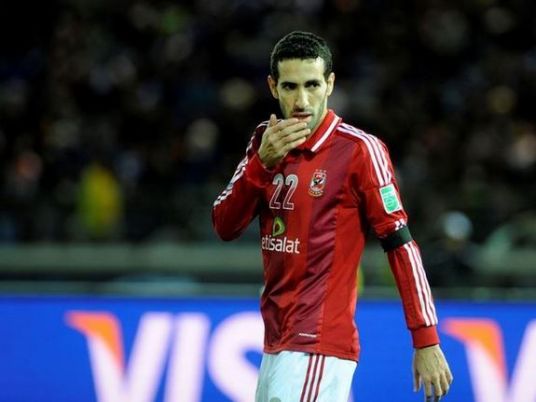President Mohamed Morsy decided on 6 July to form a fact-finding committee to determine legal liability for the killing of protesters. Article 4 of the decree stipulated that the committee should turn in its report within two months.
So far, the committee has only produced a report calling for the retrial of former President Hosni Mubarak and former Interior Minister Habib al-Adly, but has failed to produce a report on other incidents in which protesters were killed and failed to provide the names of leaders from the Supreme Council of the Armed Forces who may have incited the killings.
Reasons for the tardiness of the committee were not explained, for it was neither attributed to lack of cooperation on the part of authorities or to the absence of a clear vision of its function.
Asaad Heikal, the member of the secondary committee responsible for handling the case of the missing individuals during the revolution, resigned after his demand for the committee to remain non-politicized was ignored. This incident surely raises red flags.
I therefore demand that the committee announce its conclusions to the public and reveal the impediments that hampered its work. It should also present its findings to Tharwat Hammad, the judge appointed by the Cairo Court of Cassation to carry out investigations, particularly since criminal responsibility on the part of military leaders is as plain as day.
The military court has reviewed several cases in which protesters were killed, and the incidents are hence proven and the investigations available. All the evidence is documented, and the charges are substantiated with technical proof, including the forcible breakup of the 9 March Tahrir Square protest, and the Balloon Theater, Israeli Embassy, Maspero and Abbasseya clashes.
In all of these clashes, which were probed by the military prosecution, the military police, special forces commandos or paratroopers took part. There are also other cases that were reviewed by civilian courts such as the incidents in Mohamed Mahmoud and Mansour streets and at the Cabinet.
So now we have two civil entities carrying out investigations; the first is the above-mentioned committee appointed by the president and the second by the Court of Cassation. But I suspect the existence of a genuine political will to bring the killers to trial.
This is particularly evident after Morsy said at a military celebration on 18 October that he condemns claims that former Field Marshal Hussein Tantawi and former Armed Forces Chief of Staff Sami Anan were banned from travel, and added that measures were taken against the newspaper that published this “false news” — a reference to the removal of Al-Gomhurriya newspaper’s editor-in-chief.
These statements by Morsy emphasize the lack of political will to bring criminals to justice. In fact, these statements are grave, since they constitute a flagrant and direct intervention in the work of the judiciary on the part of the highest executive authority in the country.
In fact, Morsy’s statements on 18 October break all the promises he made for retribution, thus granting criminals immunity from punishment.
We were expecting more from Morsy’s presidency — we hoped that amendments would be made to the legislative structure to improve the status of human rights, but instead, power circles are discussing the introduction of exceptional laws that restrict freedoms. The reality is that we are facing the same laws of the former regime, which claimed suppression was the means to addressing security challenges.
Al-Nadeem Center for Rehabilitation of Victims of Violence and Torture provides a gloomy outlook, as it states that in the first 100 days of Morsy’s rule, 34 people were killed at the hands of the police, 88 were tortured and 65 were arbitrarily detained.
Besides the role of the civil judiciary, the real bet is on the public to pile on pressure to bring criminals to justice and prevent the Muslim Brotherhood’s power brokers from negotiating more deals that obstruct justice.
Mohamed Abdelaziz is a lawyer and human rights activist. This article was translated by Dina Zafer.




